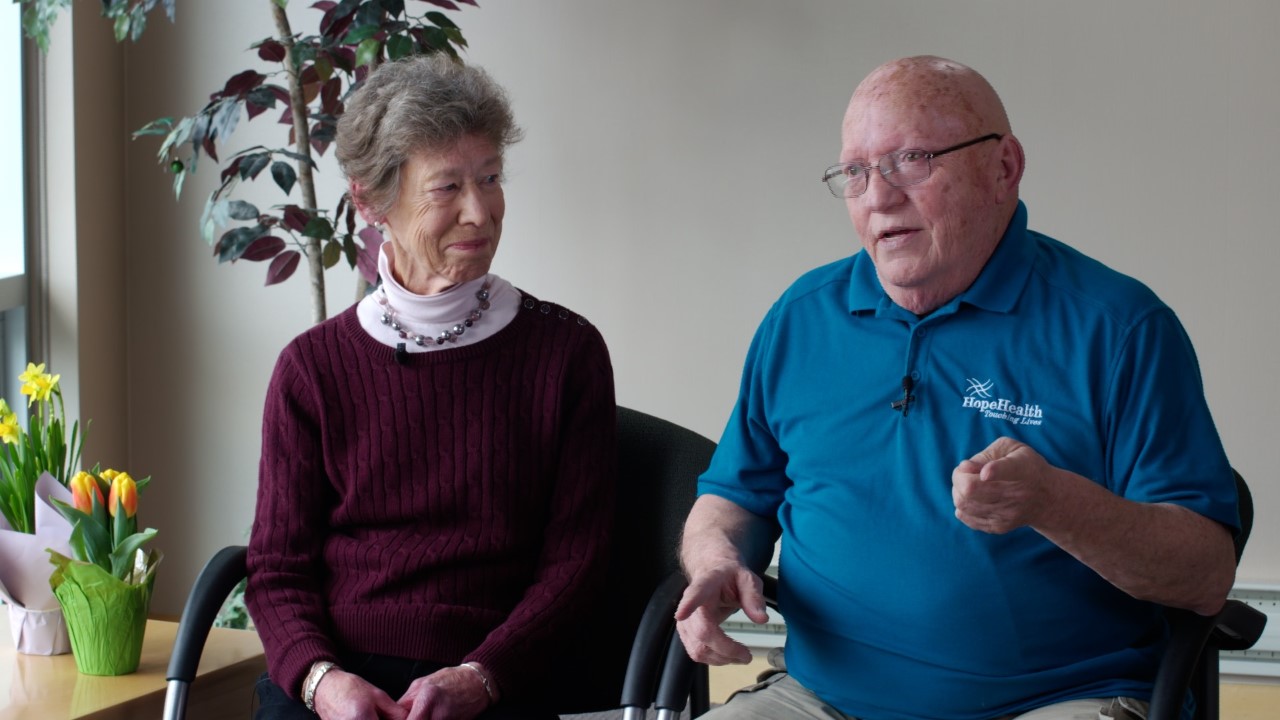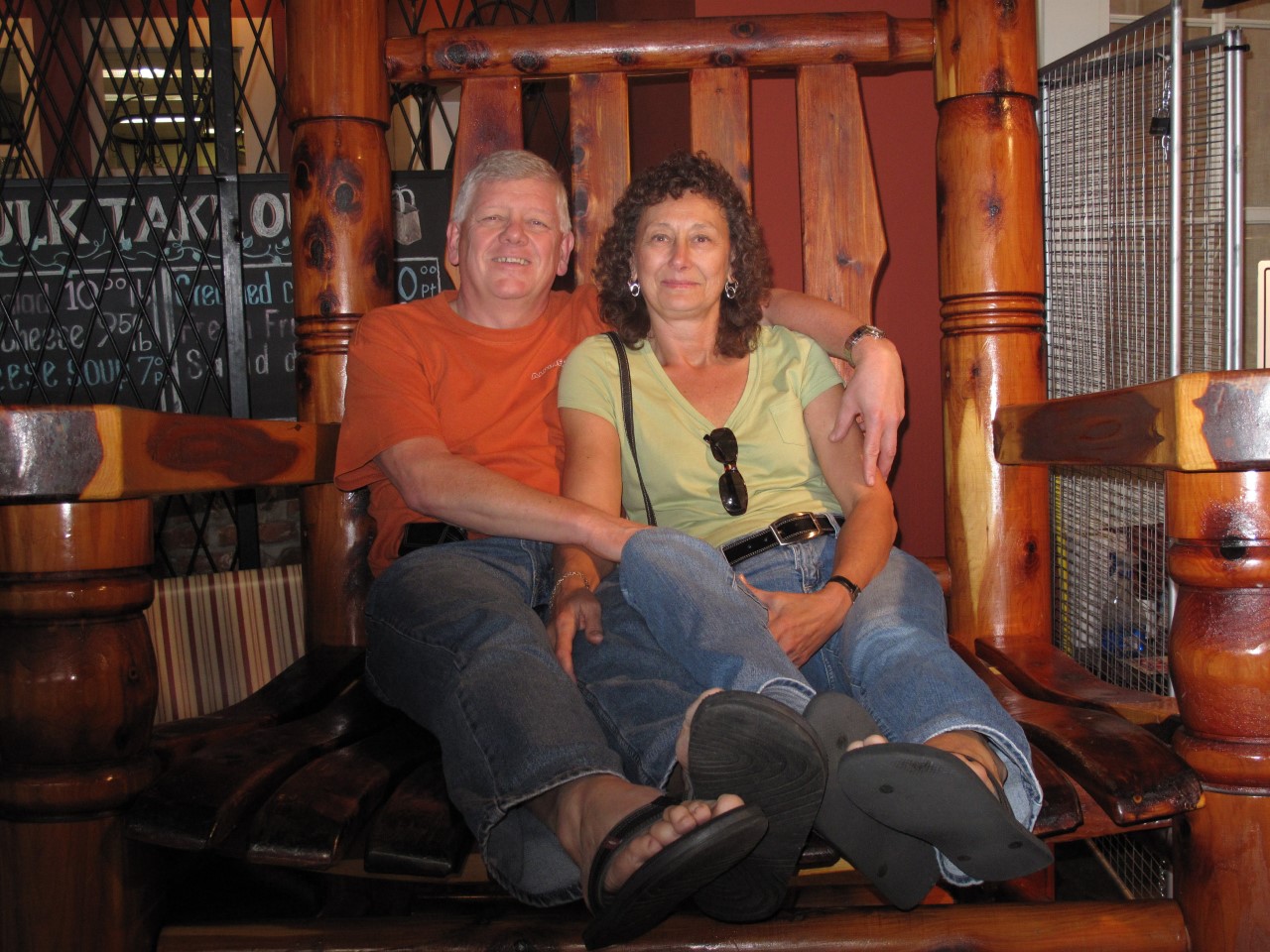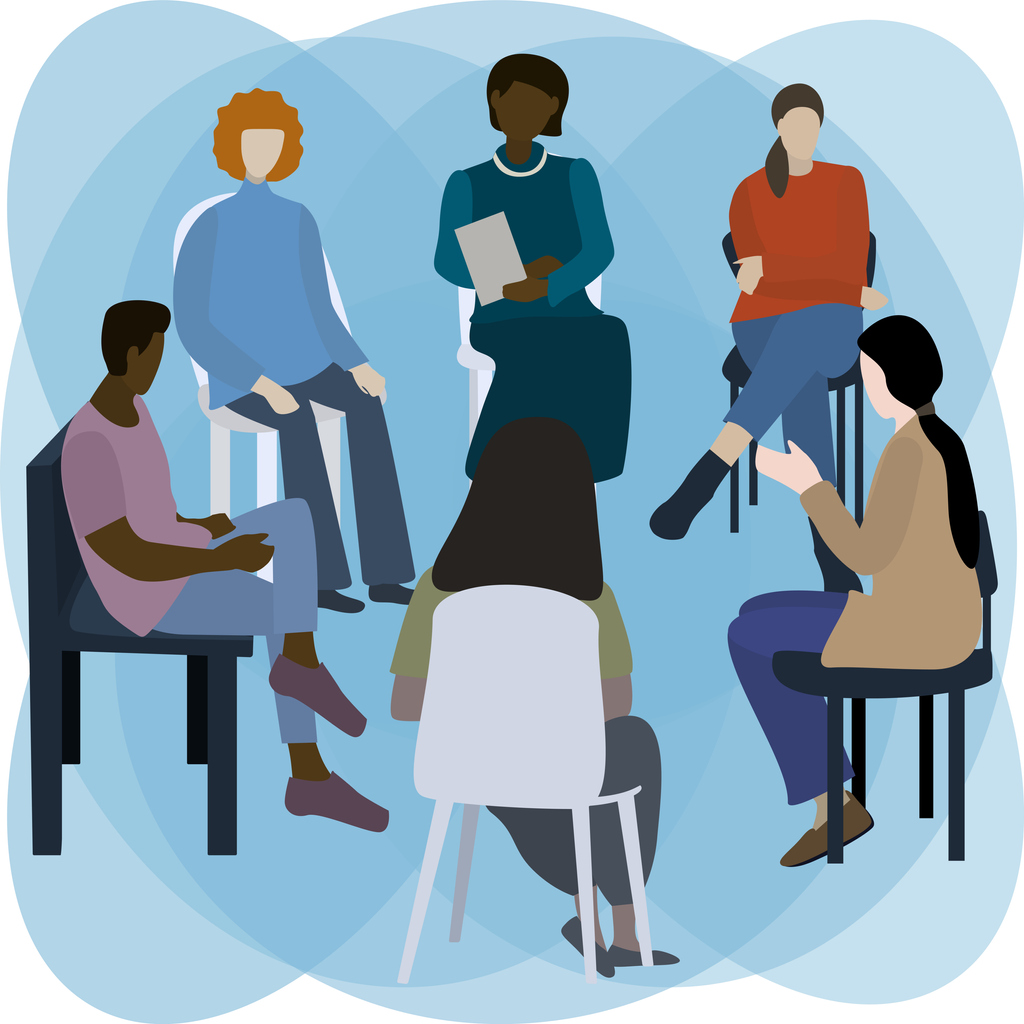HopeHealth volunteer Mark Gilchrist’s Aunt Kay was special. Every Sunday, he visited his godmother in assisted living and took her out to lunch.
“I could see that she was physically deteriorating,” he recalls, “and I said, you know, I’ve got an extra bedroom in my house. Anytime you want to move in… and she would say, no, no, I’ll be fine, I’m taking care of myself.”
Then Kay fell in the bathroom. After a stint in rehab, she agreed to move in with Gilchrist. She was 96.
“I didn’t know what I was getting myself into,” says Gilchrist. Over the next six years, Kay went from a gregarious, independent woman to someone who needed help with basic daily living. She couldn’t feed herself, she couldn’t go to the bathroom by herself, she couldn’t climb the stairs. Caregiving became all-encompassing for Gilchrist.
After Kay died at 102, Gilchrist, a trained facilitator, began co-leading caregiver support groups for HopeHealth. Right away, he saw how important that sense of community was for caregivers.
“It’s interesting, I think every new person who joins the group—the first thing they do is cry because they realize that they are not the only person going through it,” he says. “It’s a safe place for them to be.”
Caregivers confront heartache, hope – together
Gilchrist’s co-facilitator, Ki Miller, had been a hospice volunteer and was inspired by that experience to get a Master’s degree in counseling. She had a career at a hospice organization in Hartford until her husband, Tuck, began to show signs of dementia. He was diagnosed with Lewy Body dementia, and they moved to Rhode Island in 2014 to be closer to family and friends.
“With Lewy Body dementia, you can become the enemy,” says Miller. “I was either beloved or to be feared.” She hired a full-time caregiver to help with the difficult times, and later transitioned Tuck to a dementia care unit, spending every afternoon by his side until he died in 2016 at 69 years old.
Miller has been a caregiver support group facilitator at HopeHealth for five years. “In the groups,” she says, “we start with the premise that we can’t fix it. We can validate your experience. You can look around the Zoom room and get the sense of a shared experience, and that’s what the people who come to the caregiver group really appreciate.”

Amid the uncertainty of caregiving, a support network that’s lived it
Caregiving is unknown territory for many people, who watch their loved one lose their abilities over time—with no road map for what’s ahead. “A lot of times,” says Gilchrist, “it’s just forgiving yourself for losing patience.”
Miller recalled a participant who was caring for his mother. She had worked in banking and had always been great with money. But she couldn’t do it anymore.
“He spent so much time trying to reorient her and saying, no, Mom, no. And people in the group were gently saying, maybe try a different approach,” says Miller. “He came back recently and said he realized she could still cook under supervision. So she told him, ‘I’m going to fix you breakfast.’ And he said, ‘great.’ A little while later, she said, ‘I’m going to fix you breakfast,’ again. He said ‘great.’ He left her house having two breakfasts and two lunches, but he was so proud of himself for not redirecting.”
Miller says that is the kind of validation that people look for and get in the caregiver support group.
One caregiver to another: Understanding, and advice
For group participant Gary Hasson, it’s that ability to relate to others’ experiences that brings him to his caregiver support group. Hasson has been caring for his wife, Paula, for eight years since she was diagnosed with dementia. An engineering technician, Paula was a leader among her colleagues, often organizing fundraisers and other activities. It was a blow to Gary and Paula when she became forgetful and had trouble making decisions.
“The way they handle the group is that each person talks and any of us can chime in to help that person, which is good,” says Hasson. “The other day, someone was there and his partner was just diagnosed and was in denial. And I told him that Paula was in denial, too. She still doesn’t want to admit that she can’t remember or can’t do something.”
Hasson says he tries to make things easy and comfortable for Paula, because he imagines it would be frustrating not to remember. Recently, he got an idea from another group member, whose wife is now in a memory care unit.
“He made a big photo album,” Hasson says. “When she gets a little frustrated, they take the album out and look at it.” Now, Hasson is making a photo book of his own, with pictures of relatives to help Paula remember when they visit.
“It’s the other people in the group who have been through it and tried something,” he says. “It may not work for you, but it’s something to try. You’re talking to other people and you’re getting ideas about how to help yourself, and you’re able to share some of your ideas with other people.”
Hasson and Paula are still busy and active. They go to spin class three days a week, attend sporting events for younger family members, go out to dinner and travel. “Some of these things can put a strain on me,” says Hasson, “but the group gives me the support I need to keep doing things as long as we can. Time is precious.”


